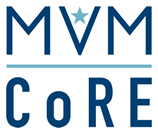MIRECC / CoE
Rocky Mountain MIRECC for VA Suicide Prevention

Updated: 4 March 2019
Assessment Tools
The measures listed here are not intended to be a comprehensive list; rather they are tools which our staff frequently employs. Information on these measures is available to everyone. However, the measures should only be used by qualified mental health professionals and/or researchers. Additionally, in the context of a clinical evaluation these measures are typically used in conjunction with other measures and/or a clinical assessment, as opposed to being used as stand-alone tools.
Welcome to the Rocky Mountain MIRECC Assessment Tool
Simply click on the plus (+) symbol to expand the section and read more about each selected research project. And the minus (-) to close that section.
The PhenX Toolkit for Mental Health Research
On August 10, 2013, President Obama announced a National Research Action Plan (NRAP) designed to improve access to mental health services for veterans, service members, and military families. Focused on traumatic brain injury, post-traumatic stress disorder (PTSD), and suicide prevention, NRAP calls for the National Institute of Mental Health (NIMH), the Department of Defense (DoD), and the Department of Veterans Affairs (VA) to identify common data elements (CDEs) that facilitate sharing of research data.
In response to NRAP, NIMH launched the PhenX Measures for Mental Health Research Project. The goal of this project is to establish a common currency that will enable a better understanding of the etiology, progression, and treatment of suicide, PTSD, and other mental health conditions by selecting high-quality mental health–related measures and protocols for inclusion in the PhenX Toolkit. Consistent use of PhenX measures, and thus CDEs, will make it easier for investigators to compare results from different studies and to combine data sets to create larger sample sizes, increasing statistical power and the ability to detect more subtle and complex associations among variables.
From the PhenX Toolkit website accessed 12/22/2014
See the PhenX Toolkit for Mental Health Research to learn more
Beck Scale for Suicidal Ideation (BSS)
Brief Description:
The BSS is a 21-item scale used to assess suicidal ideation where respondents are asked to report on a 3-point scale ranging from 0 to 2. Total scores range from 0-38. The last two items refer to past suicide attempts and do not contribute to the overall score.
Objective:
Assess suicidal ideation
Format:
Self-report, multiple choice
Age:
17 and older
Forms:
English & Spanish
Type of data obtained:
quantitative
Minimal requirements for administration:
To administer clinicians must review the manual
Time required to administer:
5-10 minutes
Sample item:
Sample items cannot be reproduced
Obtain from:
http://www.pearsonassessments.com/HAIWEB/Cultures/en-us/Productdetail.htm?Pid=015-8018-443&Mode=summary
References:
Beck, A.T., Steer, R.A., & Ranieri, W.F. (1988). Scale for suicidal ideation: Psychometric properties of a self-report version. Journal of Clinical Psychology, 44, 499-505.
Columbia Suicide Severity Rating Scale (C-SSRS)
Brief Description:
The C-SSRS is a questionnaire used for suicide assessment
Objective:
Assess occurrences, types and severity of suicidal ideation and suicidal behavior
Format:
Clinician administered interview
Type of data obtained:
Quantitative and qualitative
Minimal requirements for administration:
To administer, clinicians must complete a 30-minute interactive slide presentation followed by a question-answer session or using a DVD of the presentation
Time required to administer:
5-10 minutes
Sample item:
Items cannot be reproduced; contact Dr. Kelly Posner (kposner@childpsych.columbia.edu) for copies of the C-SSRS or permission for use
Obtain from:
http://www.cssrs.columbia.edu/
Self-Harm Behavior Questionnaire (SHBQ)
Brief Description:
The SHBQ is a self-report measure composed of four sections, each assessing different facets of suicide-related behavior.
Objective:
Assess suicidal ideation, suicide-related communications, non-suicidal self-injury, and suicidal behavior
Format:
Clinician administered interview
Type of data obtained:
quantitative and qualitative
Minimal requirements for administration:
To administer clinicians must review book.
Time required to administer:
10-15 minutes
Sample item:
Have you ever hurt yourself on purpose? YES NO; Have you ever threatened to commit suicide? YES NO; Have you ever attempted suicide? YES NO
Obtain from:
http://www.niupress.niu.edu/niupress/scripts/book/bookResults.asp?ID=440
References:
Fliege, H., Kocalevent, R., Walter, O. B., Beck, S., Gratz, K. L., Gutierrez, P. M., & Klapp, B. F. (2006). Three assessment tools for deliberate self-harm and suicide behavior: Evaluation and psychopathological correlates. Journal of Psychosomatic Research, 61(1), 113-121.
Gutierrez, P. M., Osman, A., Barrios, F. X., & Kopper, B. A. (2001). Development and initial validation of the Self-Harm Behavior Questionnaire. Journal of Personality Assessment, 77(3), 475-490.
The Lifetime Suicide Attempt Self Injury Interview (LSASI)
Brief Description:
The LSASII is a clinician-administered interview aimed to obtain detailed information regarding lifetime nonsuicidal self-injury and suicide attempts. Information obtained includes intention to die, medical treatment obtained, and lethality of behavior.
Objective:
Assess lifetime nonsuicidal self-injury and suicide attempts
Format:
Clinician administered interview
Type of data obtained:
quantitative and qualitative
Minimal requirements for administration:
To administer clinicians must review a 2-page instruction guide.
Time required to administer:
10-15 minutes
Obtain from:
Download copy
References:
Linehan, M. M. & Comtois, K. (1996). Lifetime Parasuicide History. University of Washington, Seattle, WA, Unpublished work.
University of Washington Risk Assessment Protocol (UWRAP)
Brief Description:
The UWRAP is a risk management protocol designed to assess changes in suicidality and distress that occur following a research assessment or intervention.
Objective:
Assess overall distress, suicidal ideation and intent to engage in suicidal behavior before and after administration of an assessment or treatment protocol that occurs in the context of research. The protocol also includes a procedure for responding to suicidal risk as well as items eliciting strategies for managing any distress caused by the session.
Format:
Clinician administered
Type of data obtained:
quantitative and qualitative
Requirements for administration:
To be determined
Time required to administer:
5-10 minutes
Sample item:
On a scale of 1 to 7 what is your urge to harm yourself right now.
Obtain from:
Download copy
References:
Linehan, M.M., Comtois, K.A., Ward-Ciesielski, E.F. (2011). Assessing and Managing Risk With Suicidal Individuals, Cognitive and Behavioral Practice, doi:10.1016/j.cbpra.2010.11.008
Reynolds, S.K., Lindenboim, N., Comtois, K.A., Murray, A., & Linehan, M.M. (2006). Risky assessments: Participant suicidality and distress associated with research assessments in a treatment study of suicidal behavior. Suicide and Life-Threatening Behavior, 36(1), 19-34.

























